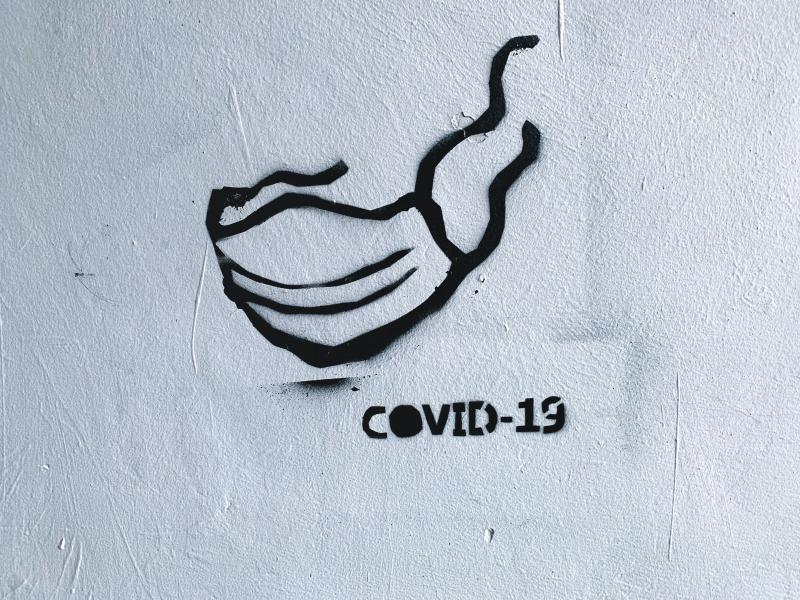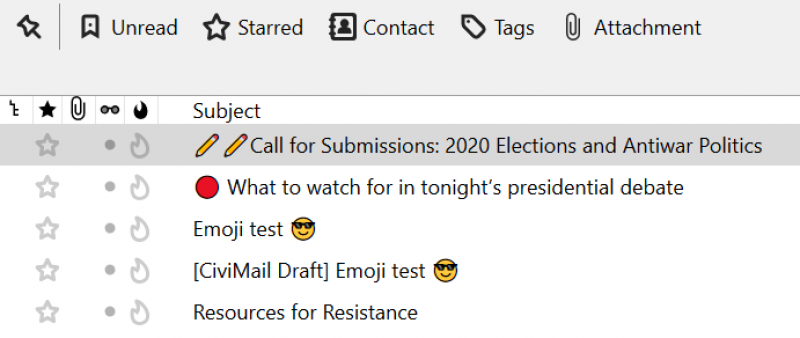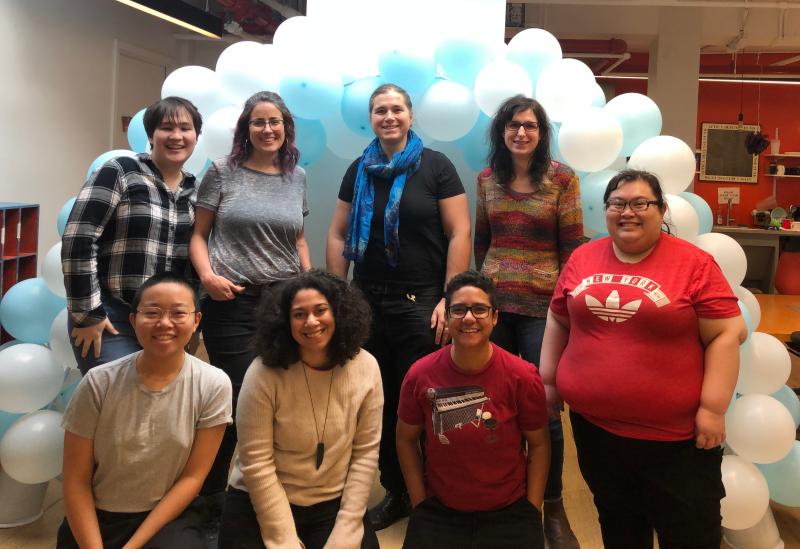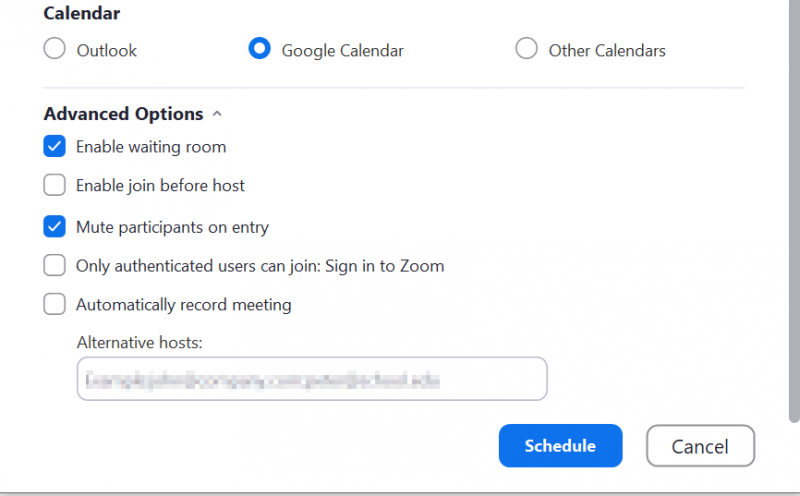Update on January 4, 2022: Due to the overwhelming surge of Covid-19 cases in NYC as a result of the Omicron variant, our tech support team will not be scheduling site visits before January 25, 2022. Should conditions be safe enough when we re-asses on January 25, we will resume scheduling with clients that need on-site work as long as they can meet our Covid-19 guidelines for worker safety. Until then, we will continue to provide remote support for all of our tech support clients.
Palante Tech Blog: 2020
10.26.2020
As of version 5.23, CiviCRM has supported utf8mb4, the text encoding required to use emoji. There is now a simple API command to convert your entire database.
10.14.2020
We maintain a wide variety of hardware and systems not only for our nonprofit clients, but also for ourselves. One challenge of that is connecting unique systems into one platform for monitoring.
07.30.2020
Almost a year before I helped start Palante in 2010, I attended my first Fighting Burnout Retreat, a yearly event held by the Audre Lorde Project to help people involved in movement organizing identify how our work might be leading to burnout and how we might be able to counter that, both for our own individual health and for the collective health of our movements. I remember discussing our levels of burnout and describing myself as "crispy."
That was eleven long and eventful years ago.
04.15.2020
At our most recent retreat we had a generative discussion on our shared values as an organization. We've been working to develop a more formal statement of our principles, which we're excited to share here and on our new Values page!
Palante Technology Cooperative and its members uphold and demonstrate the following values and principles in our work:
04.10.2020
Palante has published a new technical guide to Zoombombing self-defense! This detailed guide describes steps to take and settings to adjust before, during and after a Zoom event to protect our communities from Zoombombing and other intrusions or disruptions. The guide accompanies our recent post about how Zoombombing works and how we can use existing community safety principles and practices to defend our work and our people in virtual spaces.




